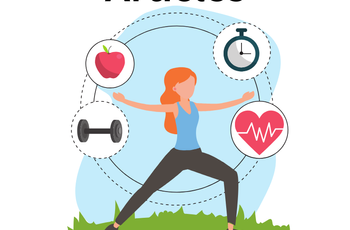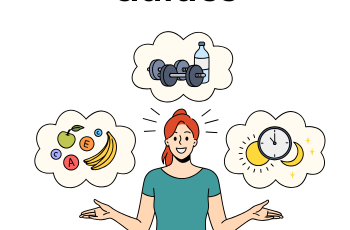Hydration is one of the simplest yet most misunderstood aspects of health. We often focus on how many glasses of water we drink, but true hydration is more about how your body feels and functions than how much liquid you consume. Some people may actually be more hydrated than they realize—without constantly chugging water.
Being well-hydrated means your body’s fluid balance supports optimal circulation, energy, digestion, and cognitive performance. Here are seven signs you’re more hydrated than you think, plus a few ways to maintain that healthy balance.
Contents
- 1 1. Your Urine Is Pale or Light Yellow
- 2 2. You Urinate Regularly and Comfortably
- 3 3. Your Skin Has Good Elasticity
- 4 4. You Have Steady Energy and Clear Thinking
- 5 5. Your Physical Performance and Recovery Are Strong
- 6 6. Your Skin, Lips, and Eyes Feel Comfortable
- 7 7. Your Digestion and Appetite Are Balanced
- 8 Why Being “More Hydrated Than You Think” Matters
- 9 How to Maintain Optimal Hydration
- 10 Common Myths About Hydration
- 11 Key Takeaways
- 12 Final Thoughts
1. Your Urine Is Pale or Light Yellow
Urine colour is one of the most reliable indicators of hydration. When your urine is light yellow or pale, your body has enough water to effectively flush waste and maintain balance. If it’s consistently light in colour and not dark or amber, it suggests your kidneys are functioning well and your hydration level is on track.
Don’t worry if your urine is nearly colourless at times—that usually just means you’ve consumed plenty of fluids recently. However, if it’s always completely clear, it could mean you’re drinking more than your body needs. Aim for a healthy middle ground: pale yellow, not dark, and not totally clear.
2. You Urinate Regularly and Comfortably
The frequency and volume of your urination can tell you a lot about your hydration status. If you’re using the bathroom every few hours and producing a moderate amount of urine, it’s a good sign that your body is processing fluids normally.
In contrast, infrequent urination or a very small volume may signal dehydration, while excessively frequent urination can indicate overhydration. For most people, urinating every two to four hours is ideal. It shows your kidneys are filtering efficiently and your fluid intake matches your needs.
3. Your Skin Has Good Elasticity
Hydration affects your skin from the inside out. One easy way to check is the “skin turgor test”: gently pinch the skin on the back of your hand and see how quickly it returns to normal. If it snaps back immediately, that’s a sign your tissues have enough fluid.
Skin that remains tented or returns slowly may indicate mild dehydration. But if your skin feels supple, smooth, and resilient, your internal hydration is likely good. Healthy skin texture is also a reflection of well-balanced hydration and nutrition.
4. You Have Steady Energy and Clear Thinking
Hydration isn’t just about thirst—it directly influences how your brain and body perform. Water supports blood flow, oxygen delivery, and cellular function. When you’re properly hydrated, your energy remains steady, your focus sharp, and your mood balanced.
If you rarely experience mid-afternoon fatigue, headaches, or brain fog, it’s a strong indicator that your hydration level is sufficient. Dehydration, even mild, can cause sluggishness and impaired concentration. So if your energy and alertness feel consistent, you’re likely in a healthy hydration zone.
5. Your Physical Performance and Recovery Are Strong
Good hydration is essential for movement, endurance, and recovery. If you can complete workouts, walks, or household activities without dizziness, cramps, or excessive fatigue, that suggests your body has the fluids it needs to regulate temperature and maintain muscle performance.
After exercise, hydration also helps flush lactic acid, support muscle repair, and reduce soreness. If you find you recover quickly and your performance remains stable from day to day, you’re probably more hydrated than you realize.
6. Your Skin, Lips, and Eyes Feel Comfortable
Dry, flaky skin, cracked lips, and irritated eyes are common signs of dehydration. The absence of those symptoms can tell you that your hydration levels are where they should be. When your body is adequately hydrated, moisture reaches your skin cells, your lips stay soft, and your eyes remain naturally lubricated.
If you rarely experience dryness, tightness, or the need for constant lip balm or eye drops, that’s an excellent sign. Hydration supports your body’s largest organ—your skin—and maintains comfort across all mucous membranes.
7. Your Digestion and Appetite Are Balanced
Hydration affects digestion, nutrient absorption, and appetite regulation. Water helps dissolve nutrients and move waste through the intestines, preventing constipation and bloating. When you’re hydrated, your digestion tends to be smoother and more regular.
People who are dehydrated sometimes mistake thirst for hunger, leading to unnecessary snacking. If your appetite feels consistent, your digestion is comfortable, and you rarely confuse hunger with thirst, your hydration habits are supporting your system perfectly.
Why Being “More Hydrated Than You Think” Matters
Many people assume they’re dehydrated if they’re not constantly sipping water, but our bodies are excellent at balancing fluids. Food, especially fruits and vegetables, contributes significantly to hydration. Even tea, coffee, and soups add to your daily water total.
Being slightly overhydrated isn’t usually dangerous, but it doesn’t bring extra benefits either. What matters most is maintaining a stable balance—enough water for your body to perform all essential functions without overloading your kidneys.
If you recognize several of the signs above, it means your body is working efficiently, your hydration habits are on point, and you don’t need to stress about hitting arbitrary water goals.
How to Maintain Optimal Hydration
Even if you’re already well-hydrated, maintaining that balance takes mindful habits. Here’s how to stay consistent:
1. Drink according to activity, not just routine
If you sweat heavily, exercise, or spend time in heat, increase your intake gradually.
2. Eat hydrating foods
Water-rich foods such as cucumbers, oranges, spinach, tomatoes, and watermelon help maintain hydration naturally.
3. Pay attention to your environment
Air conditioning and heating can dry out your body faster than you think.
4. Don’t rely only on thirst
By the time you feel thirsty, your body may already be slightly under-hydrated.
5. Balance fluids with electrolytes
If you’re very active, include mineral-rich foods or a balanced electrolyte drink occasionally.
6. Monitor your output
Pale urine and regular bathroom visits are reliable indicators of good balance.
7. Limit excess caffeine and alcohol
These can increase fluid loss, though moderate intake usually has minimal effect if your diet is balanced.
Common Myths About Hydration
Myth 1: You must drink eight glasses of water every day
The “8×8” rule (eight 8-ounce glasses) is outdated. Your needs depend on body size, activity, diet, and environment. Some people thrive on less; others need more.
Myth 2: Only plain water counts
Any non-alcoholic fluid—tea, coffee, milk, soups, smoothies, or water-rich fruits—contributes to hydration.
Myth 3: If you don’t feel thirsty, you’re dehydrated
Many well-hydrated individuals rarely feel strong thirst. Your body often signals thirst only when fluids drop below optimal levels.
Myth 4: Clear urine means perfect hydration
Completely clear urine can indicate overhydration. Aim for pale yellow, not transparent.
Myth 5: You can’t drink too much water
Excessive water without electrolytes can lead to low sodium levels, known as hyponatremia. It’s rare but possible, particularly in endurance athletes.
Key Takeaways
- Hydration is more than just water intake—it’s how efficiently your body regulates fluids.
- Signs of good hydration include light urine colour, regular urination, elastic skin, consistent energy, smooth digestion, and healthy tissues.
- You may already be well-hydrated from your diet and daily routines without realizing it.
- Maintaining hydration is about consistency and awareness, not perfection or high-volume drinking.
Final Thoughts
True hydration is balance, not excess. If you’re noticing these seven signs—healthy urine colour, regular bathroom breaks, elastic skin, steady energy, strong performance, moisturized skin and eyes, and balanced digestion—you’re probably doing just fine.
Rather than obsessing over hitting exact water targets, focus on how you feel: alert, energetic, and comfortable. Your body is an excellent communicator. When you learn to listen to its cues, you’ll know whether you’re dehydrated, balanced, or more hydrated than you think.

